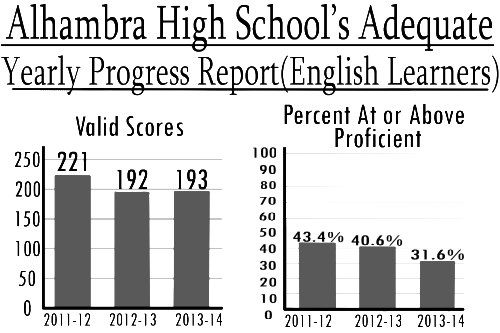Department of Education Advocates for ELL Reform
DENISE TIEU
News Editor
SHELLEY LIN
Staff Writer

An estimated 10 percent of students in kindergarten to twelfth grade, nationwide, are English Language Learners (ELL). ELLs are defined by the federal government as students who do not speak, read, write or understand English well enough to score a proficient on state achievement assessments. There are five levels of ELL proficiency: Basic, Low Intermediate, High Intermediate, Proficient and Advanced Proficient. As of now, the Assistant Deputy Secretary of the Office of English Language Acquisition in the Department of Education Libia Gil and Secretary of Education Arne Duncan are working together to help decrease the testing burden on ELL students and teachers.
All enrolled ELLs are required to take an English proficiency exam every year in all states in order to see the student’s progress in learning English, as mentioned by the U.S. Department of Education. In addition, ELLs are required to take the same mathematics and science tests as native English speakers.
“We do believe in annual testing, but we also believe there’s overtesting. You have state assessments, you have local assessments, you have classroom assessments—some for different purposes, not all for accountability,” Gil said, according to Education Week.
In California, the California English Language Development Test (CELDT) is given to students whose primary language is not English. The CELDT tests a student’s ability in listening, speaking, reading and writing; it will soon be revised to fit Common Core standards.
“Sometimes newcomer ELLs don’t understand the significance of the CELDT. When they don’t try their best on the test, they can be placed in a [Structured English Immersion] (SEI) class that is too easy for them. Then they don’t feel challenged and their progress isn’t as rapid as it could be. Some ELLs who have been in the U.S. for longer than six years may not try their best on the CELDT because they don’t perceive themselves as English learners anymore,” ELL teacher Karen Jacobson said.
A 2011 study conducted by UCLA’s Graduate School of Education and Information Studies found that ELLs are two times more likely to drop out of school than non-ELLs. According to TakePart, California has almost half of the U.S.’ ELL population. As mentioned by NBC, ELLs are the most disadvantaged minority in schools since there is a small pool of teachers who meet the requirements to teach ELLs.
“The ones I see [that] drop out the most are students who come in their senior year. They believe they can learn enough English in one year [and go on] to a four-year university, but that’s not possible,” ELL teacher Esther Kalbfleisch said.
According to the American Federation of Teachers (AFT), there is little research that focuses primarily on the instruction of ELL students from kindergarten to twelfth grade. The AFT suggests devoting a specific time frame to ELL instruction during which different forms of English are taught, with an emphasis on speaking and listening.
“Some students learn English quickly, some slowly. […] It’s a shame that we push kids to another level when they aren’t ready. It can be incredibly stressful for students who get moved up to the next SEI level without having the English skills in place to succeed at that higher level,” Jacobson said.
According to Daily News, Duncan and Gil believe that ELLs are vital for America’s future. By spending more time teaching English to non-native speakers, the United States would have a larger pool of bilingual speakers, which would help in the global economy. Individuals who are bilingual or multilingual are sought out by many careers, according to the Chicago Tribune.
“I think it is very important to advance my English skills; without English, I can’t do anything, such as the simplest daily communication. I do think the assessments [that I take] are helpful because they teach me a lot of [vocabulary words], but I do want to protest that the grammar we learn is too easy and does not apply to our writing,” sophomore Xinran Zhao said.